A Recap of the 2022 UCSF HMTRC Workshop
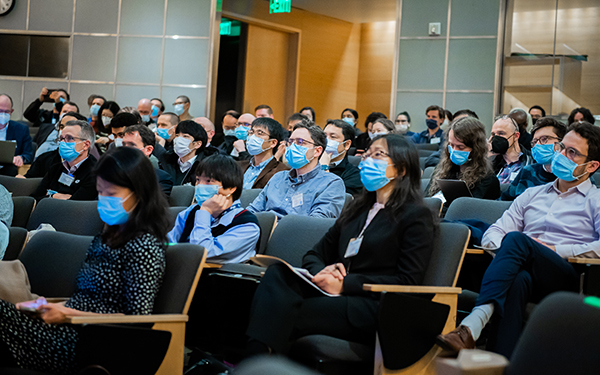
This year, we are grateful for the safe return of in-person events to present and share research, developments and innovations related to radiology and biomedical imaging. This includes the annual Hyperpolarized Carbon-13 MRI Technology Development Workshop hosted by the NIH-funded UCSF Hyperpolarized MRI Technology Resource Center (HMTRC) which took place at Genentech Hall, UCSF Medical Center at Mission Bay on March 17 and 18, 2022.
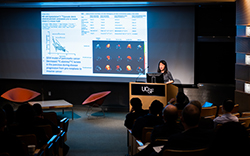 “We’ve seen through numerous studies the potential of hyperpolarized carbon-13 MRI to advance scientific investigation and patient care, but this emerging molecular imaging method requires major technological development to realize its full potential,” says Daniel Vigneron, PhD, professor and HMTRC director. “This was one of the motivations for creating the center and each year, the workshop gives us a chance to share knowledge, provide training, discuss methodology and share updates related to clinical translation of this technology.”
“We’ve seen through numerous studies the potential of hyperpolarized carbon-13 MRI to advance scientific investigation and patient care, but this emerging molecular imaging method requires major technological development to realize its full potential,” says Daniel Vigneron, PhD, professor and HMTRC director. “This was one of the motivations for creating the center and each year, the workshop gives us a chance to share knowledge, provide training, discuss methodology and share updates related to clinical translation of this technology.”
The two-day event included plenary talks given by representatives from Gold Sponsors of the event, GE Healthcare, MilliporeSigma Isotec Stable Isotopes Division, and Bruker along with plenary talks from Jane Wang, MD, HMTRC medical director and UCSF Radiology Faculty Michael Ohliger, MD, PhD and Robert Flavell, MD, PhD, UCSF Cancer Center Faculty Rahul Aggarwal, MD and Susan Chang, MD as well as global faculty. Hands-on demonstrations and discussions focused on dissolution DNP methodology, polarizer instrumentation, MR sequence and acquisitions, bioreactors, chemistry and pharmacy reps and clinical translation.
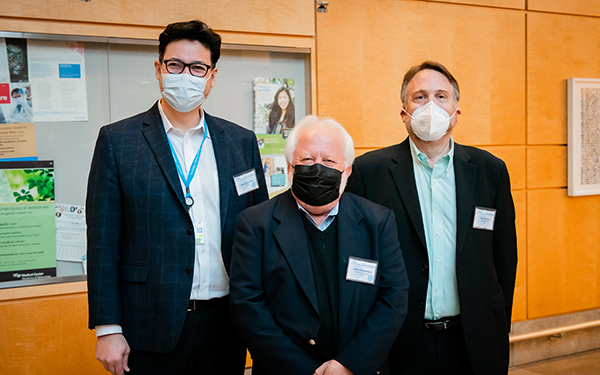
The HMTRC is based on three Technology Research & Development (TR&D) projects led by experienced hyperpolarized MR researchers at UCSF. These researchers presented at this month’s workshop:
- TR&D1 focuses on DNP polarizer and MR acquisition development and pre-clinical animal studies.
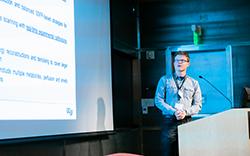
- Jeremy Gordon, PhD and Andrew Riselli, PharmD spoke on “Technology Development for Polarizer and Detector Instrumentation.”
- TR&D2 focuses on the development of new robust and realistic pre-clinical models for HP MR studies, optimization of current HP probes & investigation of new HP probes, and the development of methods that provide appropriate correlative pathologic, biologic and other imaging data for understanding and validating HP MR findings.
- John Kurhanewicz, PhD and Renuka Sriram, PhD spoke on “Development of Novel Hyperpolarized MR Molecular Imaging Probes Tested in Realistic Preclinical Models and Correlative Science Studies.”
- TR&D3 focuses on the development of a free open-source specialized data analysis platform for HP MR data reconstruction and interpretation.
- Peder Larson, PhD and Duan Xu, PhD spoke on “Acquisition and Analysis Methods for Hyperpolarized MR Data.”
“It was great to see the HP 13C MRI scientific community back in person at the 2022 UCSF HMTRC Workshop and to see the continued maturation of this powerful technique to image metabolism - coming soon to a scanner near you,” said Christopher Hess, MD, PhD, UCSF Radiology chair.
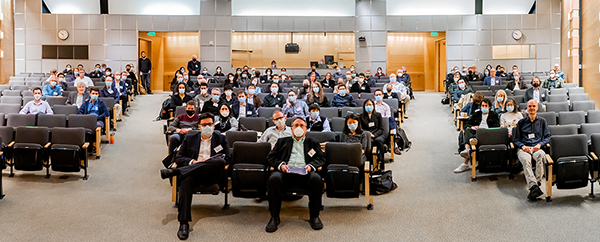
The HMTRC at UCSF is a National Center for Biomedical Imaging and Bioengineering (NCBIB) funded by the National Institute of Biomedical Imaging and Bioengineering (NIBIB) (P41EB013598). Learn more about the projects supported by the center.
